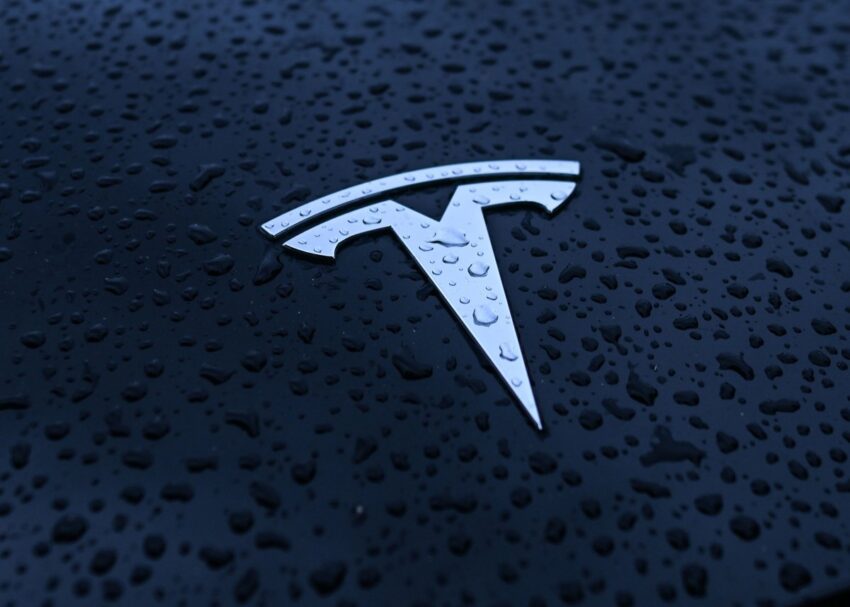
tesla s full self-driving software under investigation The U.S. National Highway Traffic Safety Administration (NHTSA) has launched an investigation into Tesla’s Full Self-Driving (FSD) software following reports of traffic safety violations.
tesla s full self-driving software under investigation
Overview of the Investigation
The NHTSA, the federal agency responsible for ensuring vehicle safety, has identified over 50 incidents involving Tesla’s FSD software. These reports detail instances where the software allegedly ran red lights, crossed yellow lines, or executed illegal turns. The investigation raises significant concerns about the reliability and safety of Tesla’s autonomous driving technology, especially as the company continues to promote its capabilities to consumers and regulators alike.
Background on Tesla’s Full Self-Driving Software
Tesla’s Full Self-Driving software is designed to enable vehicles to navigate and drive autonomously under certain conditions. The software is part of Tesla’s broader vision of achieving fully autonomous vehicles, which the company has been pursuing for several years. FSD is marketed as an advanced driver-assistance system that can handle a variety of driving tasks, including changing lanes, navigating intersections, and parking.
Despite its name, FSD does not currently allow for fully autonomous driving without human oversight. Tesla has made it clear that drivers must remain attentive and ready to take control at any moment. However, the branding and marketing of FSD have led many consumers to believe that the technology is more advanced than it currently is, raising questions about the implications for safety and regulatory compliance.
Details of the Reports
The reports that prompted the NHTSA investigation include a range of concerning behaviors exhibited by the FSD software. Some of the most notable incidents involve:
- Running Red Lights: Instances where the software failed to stop at red traffic signals, potentially endangering both the vehicle occupants and other road users.
- Crossing Yellow Lines: Reports of the vehicle straying into oncoming traffic or crossing into adjacent lanes without proper signaling.
- Illegal Turns: Situations where the software made turns that were not permitted, further complicating the driving environment.
These behaviors not only violate traffic laws but also pose significant risks to public safety. The NHTSA’s investigation aims to determine whether these incidents are isolated or indicative of a broader issue with the FSD software.
Implications for Tesla and the Automotive Industry
The investigation into Tesla’s FSD software has far-reaching implications for the company, the automotive industry, and the future of autonomous driving technology. As one of the leading companies in the electric vehicle market, Tesla’s reputation is closely tied to its technological advancements. Any findings from the NHTSA investigation could impact consumer trust and the company’s market position.
Potential Regulatory Consequences
If the investigation reveals systemic issues with the FSD software, the NHTSA may impose regulatory actions against Tesla. These could include:
- Mandatory Software Updates: The agency may require Tesla to implement changes to the FSD software to address safety concerns.
- Fines and Penalties: Tesla could face financial repercussions if found in violation of safety regulations.
- Restrictions on FSD Marketing: The company may be prohibited from promoting FSD as a fully autonomous solution until it meets safety standards.
Such actions could not only affect Tesla’s operations but also set a precedent for how other companies in the autonomous vehicle space are regulated. The outcome of this investigation may influence future policies and standards for autonomous driving technology across the industry.
Impact on Consumer Trust
Consumer trust is a critical factor in the adoption of new technologies, especially those related to safety. The ongoing investigation may lead to increased skepticism among potential Tesla buyers regarding the capabilities of FSD. If consumers perceive the technology as unsafe or unreliable, it could hinder Tesla’s sales and growth prospects.
Moreover, the investigation may prompt existing Tesla owners to reconsider their use of the FSD feature. If drivers feel uncertain about the software’s ability to navigate safely, they may choose to limit their reliance on it, which could impact Tesla’s overall user experience and customer satisfaction ratings.
Stakeholder Reactions
The investigation has elicited a range of reactions from various stakeholders, including industry experts, consumer advocacy groups, and Tesla itself.
Industry Experts
Many industry experts have weighed in on the implications of the NHTSA investigation. Some have expressed concerns that Tesla’s aggressive marketing of FSD may have outpaced the technology’s actual capabilities. Experts argue that while advancements in autonomous driving are promising, they must be approached with caution to ensure public safety.
Others have noted that the investigation could serve as a wake-up call for the entire automotive industry. As more companies develop autonomous driving technologies, the need for robust regulatory frameworks and safety standards becomes increasingly critical. The outcome of the NHTSA’s investigation may encourage other manufacturers to prioritize safety in their own autonomous systems.
Consumer Advocacy Groups
Consumer advocacy groups have also reacted strongly to the news of the investigation. Many organizations are calling for greater transparency from Tesla regarding the capabilities and limitations of its FSD software. They argue that consumers deserve to know the risks associated with using such technology, especially when it is marketed as “full self-driving.”
Advocates for consumer safety have emphasized the importance of rigorous testing and validation for autonomous driving systems. They argue that the NHTSA should take a proactive approach to ensure that all manufacturers adhere to high safety standards before deploying autonomous technologies on public roads.
Tesla’s Response
In response to the investigation, Tesla has stated that it is cooperating fully with the NHTSA and is committed to addressing any safety concerns that may arise. The company has emphasized that its FSD software is continuously updated and improved based on real-world data and user feedback.
Tesla has also reiterated that drivers are responsible for maintaining control of the vehicle and must remain attentive while using the FSD feature. The company argues that the software is designed to assist drivers rather than replace them entirely, a point that it has consistently communicated in its marketing materials.
The Future of Autonomous Driving Technology
The investigation into Tesla’s FSD software highlights the complexities and challenges associated with the development of autonomous driving technology. As the industry continues to evolve, several key factors will shape its future.
Technological Advancements
Advancements in artificial intelligence, machine learning, and sensor technology will play a crucial role in improving the safety and reliability of autonomous driving systems. Companies must invest in research and development to enhance their technologies and address the shortcomings that have been identified in current systems.
Regulatory Frameworks
The need for comprehensive regulatory frameworks is becoming increasingly apparent. As autonomous driving technology becomes more prevalent, regulators must establish clear guidelines to ensure that manufacturers prioritize safety and transparency. This may involve collaboration between government agencies, industry stakeholders, and consumer advocacy groups to develop standards that protect public safety while fostering innovation.
Consumer Education
Consumer education will also be vital in shaping the future of autonomous driving technology. As consumers become more informed about the capabilities and limitations of these systems, they will be better equipped to make decisions regarding their use. Manufacturers must take an active role in educating consumers about the technology, emphasizing the importance of responsible usage and understanding the risks involved.
Conclusion
The NHTSA’s investigation into Tesla’s Full Self-Driving software underscores the critical importance of safety in the development of autonomous driving technology. As the investigation unfolds, its findings will likely have significant implications for Tesla, the automotive industry, and the future of autonomous vehicles. The outcome may serve as a catalyst for change, prompting manufacturers to prioritize safety and transparency while advancing their technologies.
Source: Original report
Was this helpful?
Last Modified: October 9, 2025 at 5:41 pm
4 views















